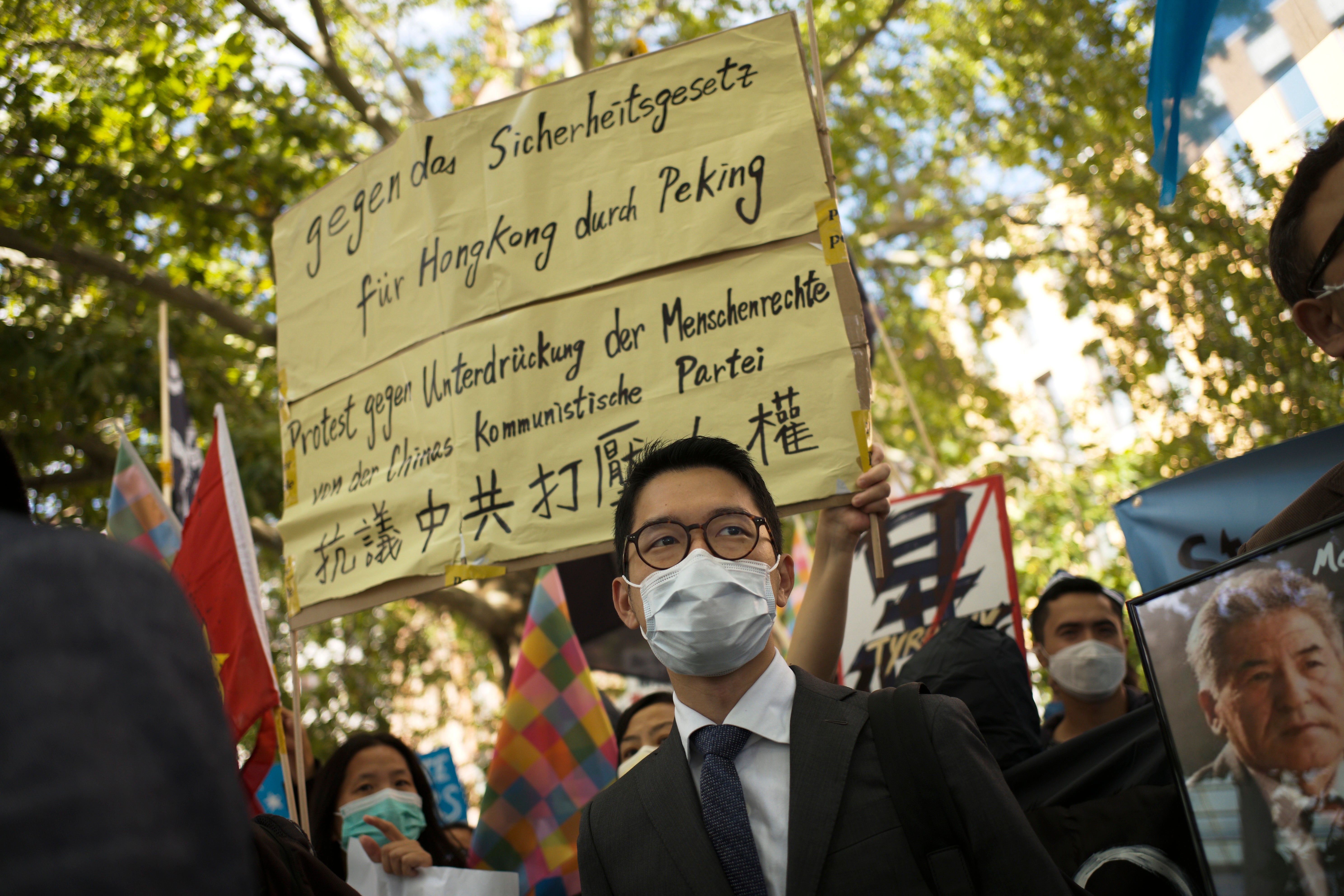Germany grants Hong Kong pro-democracy protester asylum
A 22-year-old student from Hong Kong says she has been given refugee status in Germany after demonstrating against the semi-autonomous Chinese city’s extradition law

Your support helps us to tell the story
From reproductive rights to climate change to Big Tech, The Independent is on the ground when the story is developing. Whether it's investigating the financials of Elon Musk's pro-Trump PAC or producing our latest documentary, 'The A Word', which shines a light on the American women fighting for reproductive rights, we know how important it is to parse out the facts from the messaging.
At such a critical moment in US history, we need reporters on the ground. Your donation allows us to keep sending journalists to speak to both sides of the story.
The Independent is trusted by Americans across the entire political spectrum. And unlike many other quality news outlets, we choose not to lock Americans out of our reporting and analysis with paywalls. We believe quality journalism should be available to everyone, paid for by those who can afford it.
Your support makes all the difference.A 22-year-old university student from Hong Kong says she has been given refugee status by Germany after demonstrating against the city's extradition law.
Germany’s Federal Office for Migration and Refugees would neither confirm nor deny granting the protester asylum, citing the country’s strict privacy laws.
However the woman who identified herself only as Elaine and declined to give other personal details to protect her family in Hong Kong, showed The Associated Press paperwork confirming her refugee status was granted Oct. 14.
She told the AP in a telephone interview late Tuesday that she fled Hong Kong in November while free on bail after being arrested on allegations of rioting and violating the semi-autonomous Chinese territory's law banning masks, introduced last year as anti-government protests became increasingly violent.
After arriving in Germany, it took more than nine months for her asylum application to be processed, the former Chinese University of Hong Kong student said.
“I’m very grateful to the government for covering my basic needs, including healthcare when I had to be treated for mental health issues,” she said. “But I wish they could simplify the application process, shorten the waiting time, and let us choose where we could live while we were waiting.”
Haven Assistance, a group set up by pro-democracy activists in exile to assist other Hong Kong residents seeking asylum, welcomed the news, but urged Germany and Europe as a whole to do more to help protesters seeking refuge. The group includes activists Brian Leung, Ray Wong, Simon Cheng and Lam Wing Kee.
“While Haven Assistance welcomes the German government’s decision to grant asylum to the Hong Kong protester, we also urge Germany and other European countries to continue to improve their asylum processes and consider enacting a comprehensive lifeboat policy for Hong Kongers," the group said in a release this week.
Protests against the Hong Kong government roiled the city last year after authorities tried to introduce a bill that would allow for criminal suspects to be extradited to mainland China. While that bill was eventually scrapped, protests against police violence and the erosion of liberties continued, prompting Beijing to impose a new national security law that took effect June 30.
The law outlaws subversive, secessionist and terrorist activity, as well as collusion with foreign powers to interfere in the city’s internal affairs. Many say the legislation effectively ends the “one country, two systems” framework under which semi-autonomous Hong Kong has been operating under since Beijing took over the former British colony in 1997.
The law prompted many young pro-democracy residents to make plans to leave the city for good. In August, 12 young activists trying to flee to Taiwan by speedboat were caught by Chinese coast guards and detained in China.
Germany was the first European country to give Hong Kong activists asylum when it granted Wong and fellow pro-democracy protester Alan Li Tung Sing the status in 2018 before the latest protests. That caused friction between Berlin and Beijing, and prompted Hong Kong’s leader Carrie Lam to summon the German consul to complain.
Sam Goodman, a senior policy adviser with the Britain-based Hong Kong Watch, an non-governmental organization that monitors the situation in the city, said the decision to grant Elaine asylum “demonstrates Germany's commitment to stand up for human rights” but also stressed that more could be done.
“In July, Germany along with other EU member states agreed to bring in proposals to make it easier for young Hong Kongers to work and study in Europe as part of an international lifeboat policy," Goodman said in a statement.
“We believe it is time for the German government to act on its promise and join likeminded partners in ensuring that every Hong Konger has a viable insurance policy in the face of a further crackdown on their rights,” he said.
____
Sylvia Hui in London contributed to this report.